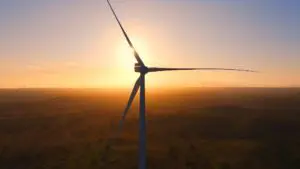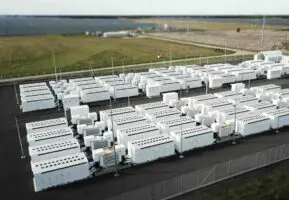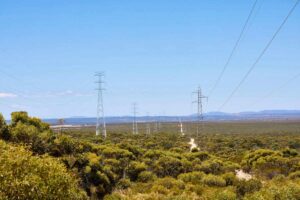This is the year the climate “dam of denial” will break and the momentum for action will become an unstoppable flood. It will be messy, confusing and endlessly debated but with historical hindsight, 2015 will be the year. The year the world turned; primarily because the market woke up to the economic threat posed by climate change and the economic opportunity in the inevitable decline of fossil fuels.
That shift will in turn unlock government policy and public opinion because the previous resistance to action argued on economic grounds, will reverse to favour action on economic grounds.

Before I argue for this conclusion, let me explain what I mean by the “dam of denial”, and why the concept is so important to understanding what’s underway.
Anyone who “gets” the urgency of the climate issue and the scale of economic transformation it necessitates, is bewildered by those who don’t.
How can so many otherwise intelligent and logical people – such as company executives, politicians and investment managers – not see the obvious urgency or the equally obvious economic risk? It is so illogical it can only be seen as denial.
This is not climate denial but an example of “implicatory denial”, the rather bizarre ability of humans to accept a risk but then stop processing the implications, just because those implications are so overwhelming. It is well covered in a study by Kari Marie Norgaard, described in her book “Living in Denial”.
Studying history – particularly the history of WWII, while writing my book The Great Disruption – led me to accept this type of denial as largely inevitable. As I wrote there, it is exactly because the implications are so great, that the denial is so strong. And because the implications get more dramatic and costly every year, the longer we delay, the stronger implicatory denial becomes!
It is now so late in the process that the implications of ending denial are truly mind-boggling. For a start to have even an 80 per cent chance (clearly too low) of limiting warming to the agreed 2°C target (clearly too high) requires us to eliminate fossil fuels – one of the world’s largest and most powerful industries – and replace it in less than a few decades.
This scale of change has enormous social and economic implications on any time scale, but to do so within decades is without precedent outside war – not to mention terrifying for the owners and managers of such businesses (and so denial-inducing)!
But despite being mind-boggling and without precedent, unfortunately it doesn’t change the facts. This is what is necessary and so it must be done. That’s why I called one of my book’s chapters “When The Dam of Denial Breaks”; because with the pressure constantly building, at some point it becomes so great the dam bursts.
If you think that’s wrong, you have to accept the alternative – that as the food supply collapses, extreme weather accelerates and military conflict over water scarcity, refugee flow and famine erupts, we will stand by idly and observe it getting steadily worse without response. That idea is so absurd it can be ignored, and that’s why the busting of the dam of denial is inevitable. But when?
This is certainly debatable but my judgement is that this is the year. Why?
Despite our obsession with it, the science on climate change is now largely irrelevant in this process. If the scientific evidence was going to shift the system, it would have done so by now – it is, after all, overwhelmingly clear on the urgency and the risk. What we have to look for instead is evidence of shifts in the human response, not the ecological one.
In this regard I look to politics and economics. In both cases there are confusing and contradictory signals but I think there are grounds to conclude we’re at the edge of something very significant. I think there are six key indicators.
1. The US China Climate deal – how change really occurs
One of the most interesting and least appreciated is the US China climate deal. Not for its practical impact on emissions but as the emergence of what I called in my book a kind of “Coalition of the Cooling”. The historical significance of the two most powerful countries in the world agreeing that climate action is so important it is worthy of such an agreement will be appreciated in hindsight – not least for its likely multi trillion dollar impact on markets.
2. Collapse in oil prices
The collapse in oil prices, considered by many to be bad news for clean energy, is quite the opposite. It’s probably one of the most powerful market influences for what I see coming. There are a variety of positive impacts from these low prices, well summarised in this article from Assaad Razzouk in the Independent.
But the most important one is the intriguing idea of global energy price deflation driven by renewables, especially solar, undermining investor confidence in fossil fuels. The Economist recently concluded on future investment in fossil fuels that “….the prospect of much cheaper solar power and storage capability may put investors off. The story may be not so much what falling oil prices mean for clean energy than what the prospect of clean energy will mean for the oil price.”
3. Solar price falls set to continue
The collapse of renewable energy’s costs, especially solar, will be seen historically as perhaps the single biggest driver of transformational change in energy markets, particularly when paired with the interconnected developments in batteries, storage and electric vehicles. The key is not just how far solar costs have fallen but the likelihood that they’ll keep falling. Critics point to the very low share of global total energy demand provided by solar. I point to the same thing to make my case. If solar is competitive on price at less than 1% of global supply, imagine what will happen when it truly scales. That’s why considering the earlier analysis on oil prices, The Economist referred to solar as a “dagger in the heart of the fossil fuel industry”, particularly when combined with clever financing and business models by fast growing disruptive solar companies like Solar City and Sungevity.
Part of this analysis is the idea of the virtuous circle of rapid growth and lowering prices leading to abundant cheap energy. There are those who argue intelligently that this is a techno-optimists pipe dream, such as Richard Heinberg in this well considered sceptism but we will soon find out given the pace at which it is all moving.
4. Market prices reflect economic disruption
Of course given all this, anyone who thinks markets are rational, at least over time, would ask “if this is all so clear, why doesn’t it reflect in prices?” It is, and dramatically so. Consider these examples:
- Some pure coal companies like Peabody have lost over 75% of their value in the last three years. Their carbon bubble has well and truly burst. And while prices will vary over time, the coal industry is not coming back and we should politely bid farewell. To quote a recent Goldman Sachs analysis: “Just as a worker celebrating their 65th birthday can settle into a more sedate lifestyle while they look back on past achievements, we argue that thermal coal has reached its retirement age.”
- The European Utility sector lost half a trillion Euros by misreading the influence of renewables and energy efficiency. There were other factors as well, as always, but it was renewables that meant, like coal, this is not cyclical but existential. The Economist again: “Renewables have not just put pressure on margins. They have transformed the established business model for utilities.”
- Tesla, which produced just 30,000 cars in 2013 is valued at nearly half of GM which produced around 9 million cars. And the oil price slide seems to have had no material impact. With Tesla’s likely move into home storage for solar and rumours of an Apple/Tesla tie up, the future is looking very interesting. In response, the market has looked at history and concluded that old companies like GM mostly won’t get it; they’ll just be replaced.
So while many climate activists focus on the political power and influence of the fossil fuel industry, I see an industry scrambling to defend itself against overwhelming forces that will see it destroyed – not in a mighty moral crusade but something far more brutal and fast – the market turning on it. Of course these companies don’t believe that is possible, and nor do many of us. But to quote Mandela, who knew a few things about driving change: “It always seems impossible until it’s done.”
5. The political power of big business starts to shift sides
A key part of the process of fossil fuels’ decline is the separation of the business community into those who feel threatened by climate action and those threatened by the lack of it. Thus we should note as a major development, the recent call by a group of major global businesses for the world to have zero net CO2 emissions by 2050, thus effectively ending companies like Shell and Exxon, at least in their current form. This separation, on self-interest grounds, within business is of huge significance. Watch that space.
6. Physical impacts accelerating and driving economic and security impact
As I argued above, the science becoming clearer won’t trigger the end of denial. Black and white getting blacker and whiter can’t influence those who don’t want to see. Which is a shame given the evidence is emerging that blacker is getting very black indeed, as argued here by David Spratt. But physical climate changes impacting the economy and public opinion will be very influential. That’s why accelerating physical impacts matter a great deal.
The most powerful symbol of this right now is the largest city in South America, Sao Paulo, Brazil facing the risk of collapse due to a punishing drought worsened by climate change and deforestation as explained here by Tom Friedman in the NYT. This is not symbolic for the people of Brazil who are facing rolling water and power cuts, businesses shut down, widespread protests and a drought reduced coffee crop driving up global prices by nearly half. It is not hard to imagine a series of events triggering the effective collapse of the Brazilian economy and the country’s descent into chaos. With 93 cities now affected and key reservoirs in both Sao Paulo and Rio down to 1 – 5% of capacity, they’re praying for rain. I hope they’re prayers are answered, but even with Pope Francis now on board, I think this may require more earthly intervention.
There are countless examples of the economic and related geopolitical significance of climate change impacts. The way climate change helped trigger the war in Syria and the rise of ISIS. How climate is driving food prices, which is driving global conflict. How an Arctic methane burst could pose a multi-trillion dollar risk to the global economy.
So will these six drivers be enough? Will the economic impacts of collapsing fossil fuels and collapsing cities force the invisible hand of the market to do what governments have failed to do? Not by itself, but it could tip a system that is primed and ready.
Changing systems requires many interconnected parts to shift. That’s why in my writing and speaking I try to summarise such complex inter-related drivers – to help us see the whole picture and recognise emerging patterns.
Of course the role of government remains key – let’s not forget that the market and technology marvel that is the accelerating solar industry only arrived because government policy initiated the process, especially in Germany, the US and China. But government is just part of a system that no one is really in charge of.
So, while the Paris climate talks this year will be an important step in a process, they are not as fundamental as many think. Such negotiations tend to follow rather than lead the system-change process. That’s why Paris this year is an indicator, rather than a driver, of system change and we should look at what drives action to understand emerging tipping points.
This is why I attach such importance to the direct economic shifts outlined above, and also to the resulting more aggressive calls for action by sections of the business community. This last point could even be the most important development of 2015 because, for all the complaints about the influence of corporates on policy, that very influence could now tip the debate in favour of action.
Given all these indicators, I think there are enough cracks in the dam of denial to argue it is about to break. That does not mean the problem is fixed. But it does mean we would stop this absurd game of implicatory denial and get to work on driving and managing the massive economic transformation that starts when denial ends.
When we try to understand and forecast change, we tend to look for big symbolic events – the global political deal, the massive economic crash or the extreme weather event that destroys a city. The reality is that change, especially system change, is just messy. It’s chaotic, confusing and often hard to see when you’re in the middle of it. But many are smelling a big shift, like the International Business Editor of the UK’s conservative broadsheet The Telegraph Ambrose Evans-Pritchard who summed it up well: “These historic turning points are hard to call when you are living through them but much of today’s fossil fuel industry has a distinct whiff of the 19th Century canals, a pre-modern relic in a world that is moving on very fast.”
This will be the year it moves a whole lot faster.








